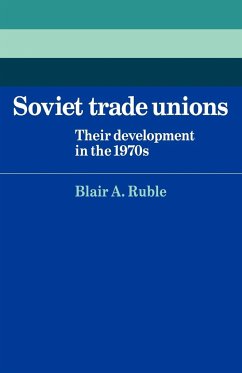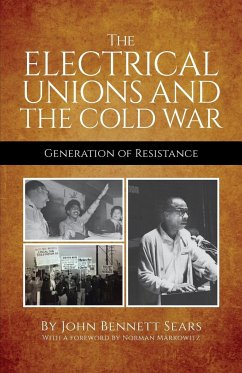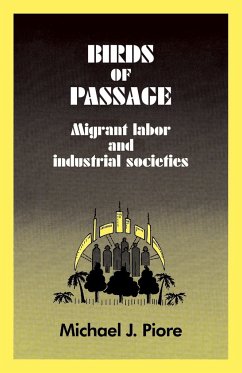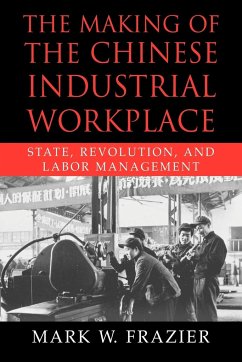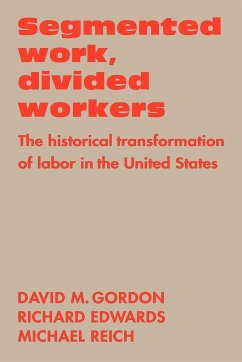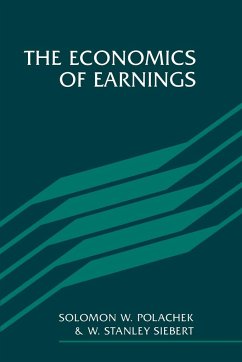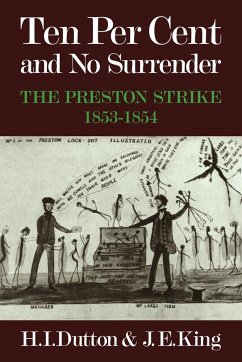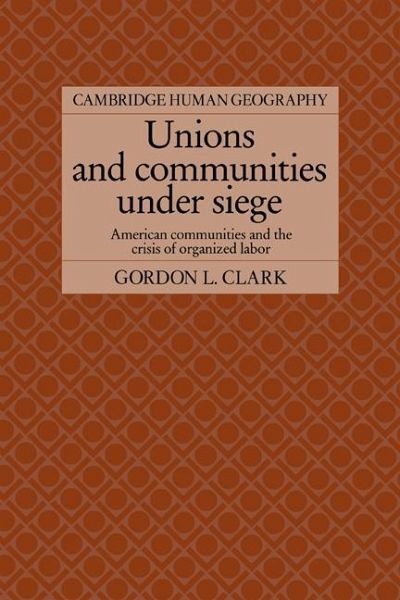
Unions and Communities Under Siege
American Communities and the Crisis of Organized Labor
Herausgeber: Robson, Brian

PAYBACK Punkte
25 °P sammeln!
This book demonstrates the significance of the intersection between communities, unions, and institutions, in understanding the prospects for American unionism.The essential argument of this book is that the current crisis of US unions ought to be considered in terms of the local context of labor-management relations; that is, the communities in which men and women live and work. Whether by design or necessity, the structure of New Deal national labor legislation has sustained, and maintained, distinctive local labor-management practices. As the economies of American communities (and the world...
This book demonstrates the significance of the intersection between communities, unions, and institutions, in understanding the prospects for American unionism.
The essential argument of this book is that the current crisis of US unions ought to be considered in terms of the local context of labor-management relations; that is, the communities in which men and women live and work. Whether by design or necessity, the structure of New Deal national labor legislation has sustained, and maintained, distinctive local labor-management practices. As the economies of American communities (and the world) have become highly interdependent, reflecting the evolution of corporate structure and trade between economies, unions movement can be traced to unions' dependence upon inter-community solidarity, a fragile democratic ideal which is often overwhelmed by economic imperatives operating at higher scales in other places. An important objective of Professor Clark in this work is to demonstrate the significance of the intersection between communities, unions, and institutions, in understanding the prospects for American unionism.
Table of contents:
List of tables; Preface; Acknowledgments; Part I. Economy and Community: 1. Crisis of organized labor; 2. Understanding union growth and decline; Part II. Drama of Economic Restructuring: 3. Communities and corporate location strategies; 4. Rationing jobs within the union, between communities; Part III. Union Performance in Representation Elections: 5. Democracy in the guise of representation elections; 6. Organizing strategies in the heartland and the South; 7. At the margin of the rules of the game; Part IV. Regulating Local Labor-Management Relations: 8. Integrity of the National Labor Relations Board; 9. Options for restructuring the US economy; Part V. Prospects For Organized Labor: 10. Republicans, democrats, and the southern veto; 11. Employment contracts without unions; 12. Unions and communities unarmed; Appendices; Notes; Bibliography; Indexes.
The essential argument of this book is that the current crisis of US unions ought to be considered in terms of the local context of labor-management relations; that is, the communities in which men and women live and work. Whether by design or necessity, the structure of New Deal national labor legislation has sustained, and maintained, distinctive local labor-management practices. As the economies of American communities (and the world) have become highly interdependent, reflecting the evolution of corporate structure and trade between economies, unions movement can be traced to unions' dependence upon inter-community solidarity, a fragile democratic ideal which is often overwhelmed by economic imperatives operating at higher scales in other places. An important objective of Professor Clark in this work is to demonstrate the significance of the intersection between communities, unions, and institutions, in understanding the prospects for American unionism.
Table of contents:
List of tables; Preface; Acknowledgments; Part I. Economy and Community: 1. Crisis of organized labor; 2. Understanding union growth and decline; Part II. Drama of Economic Restructuring: 3. Communities and corporate location strategies; 4. Rationing jobs within the union, between communities; Part III. Union Performance in Representation Elections: 5. Democracy in the guise of representation elections; 6. Organizing strategies in the heartland and the South; 7. At the margin of the rules of the game; Part IV. Regulating Local Labor-Management Relations: 8. Integrity of the National Labor Relations Board; 9. Options for restructuring the US economy; Part V. Prospects For Organized Labor: 10. Republicans, democrats, and the southern veto; 11. Employment contracts without unions; 12. Unions and communities unarmed; Appendices; Notes; Bibliography; Indexes.





